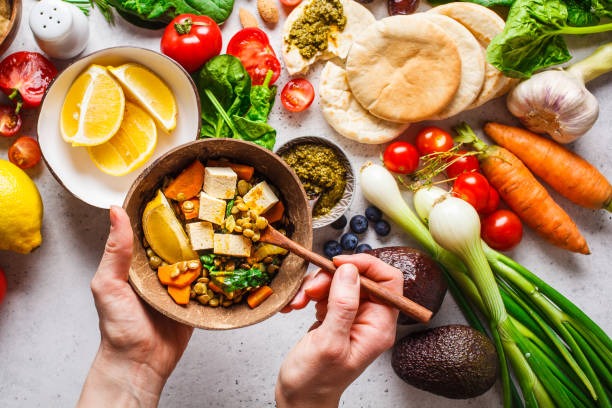Pain Point: The Economic Crisis and Its Impact on Weight Gain and Stress
1/13/20254 min read
My post content
Developing Healthier Eating Habits
Today's economic crises, marked by inflation, job insecurities, and financial instability, have triggered significant stress for individuals and families. This stress often manifests in unhealthy eating habits, like emotional eating or the consumption of cheap, processed foods high in sugar and fats. The rise in stress levels also causes hormonal imbalances (such as increased cortisol) that can lead to weight gain, particularly around the abdomen. This vicious cycle of stress and unhealthy eating is affecting people across all age groups, including kids, teenagers, and adults.
How to Resolve the Problem:
Stress Management: Practicing relaxation techniques such as deep breathing, meditation, yoga, or spending time in nature can help reduce cortisol levels and minimize stress-related overeating.
Affordable Healthy Eating: Focus on whole, minimally processed foods that are inexpensive and easy to prepare. Planning meals, buying in bulk, and cooking at home can also save money while promoting healthier eating habits.
Physical Activity: Regular exercise, such as walking, dancing, or home workouts, can help reduce stress, burn excess calories, and regulate metabolism.
Sleep: Prioritize quality sleep. Lack of sleep increases hunger hormones, which can contribute to weight gain. Aim for 7–9 hours of sleep each night.
10 Healthy Eating Tips for Kids, Teenagers, and Adults to Combat Weight Gain During Stress:
Include Whole Grains: Brown rice, oats, quinoa, and whole-wheat pasta are fiber-rich, filling, and affordable options. They help control hunger and stabilize blood sugar levels.
Eat More Vegetables: Leafy greens like spinach, kale, and broccoli are rich in nutrients, low in calories, and help keep you full longer.
Limit Processed Foods: Avoid sugary snacks, fast food, and junk food. These foods spike your blood sugar and leave you feeling sluggish and unsatisfied.
Healthy Protein Sources: Incorporate lean proteins like beans, lentils, eggs, chicken, or tofu. They help build muscle and keep hunger at bay.
Nuts and Seeds: A handful of almonds, walnuts, or chia seeds can provide healthy fats and proteins that keep you energized throughout the day.
Hydrate with Water: Drinking plenty of water helps curb hunger and keeps your metabolism functioning efficiently. Aim for 8-10 glasses daily.
Incorporate Fruits: Opt for nutrient-dense fruits like apples, berries, and oranges. These are packed with vitamins, antioxidants, and fiber, and can be a sweet, satisfying snack.
Meal Prep: Preparing meals ahead of time can reduce stress and prevent impulsive, unhealthy eating. Focus on balanced meals with protein, fiber, and healthy fats.
Mindful Eating: Take time to chew and savor your meals, which helps prevent overeating. Being present during meals can also help you manage stress and avoid emotional eating.
Avoid Sugary Drinks: Replace sugary sodas and beverages with water, herbal teas, or homemade smoothies. These options are lower in calories and provide better hydration.
Specific Foods for Kids, Teenagers, and Adults:
For Kids: Healthy snacks like apple slices with peanut butter, yogurt with berries, or homemade veggie sticks with hummus can promote healthy eating habits while providing essential nutrients.
For Teenagers: A balanced breakfast with whole-grain cereal, eggs, and fruit can set them up for a productive day. Encourage healthy lunches like wraps with lean protein and vegetables, or salads with a variety of toppings.
For Adults: Adults can benefit from incorporating balanced meals like grilled chicken with quinoa and steamed vegetables, or a large salad with chickpeas, avocado, and a light vinaigrette dressing.
By making mindful food choices and incorporating stress-reducing strategies into daily life, people of all ages can effectively manage stress, avoid weight gain, and navigate the economic challenges of today.
I hope this blog has successfully introduced you to a healthier eating lifestyle, as that’s exactly what the Keto Diet did for me in my weight loss journey over a year ago. I lost 44 pounds, and Keto was the starting point that truly helped me get on track. I loved the Keto foods and how they made me feel.
However, over time, I realized that while Keto gave me a great foundation, I needed to develop a more balanced approach. That’s when I combined Keto with other healthy habits, including dancing, to create a routine that worked for me. Dancing became a fun, engaging way to stay active, and it helped me maintain my weight loss while keeping me motivated.
Together, Keto and dancing formed the perfect combination and other things to not only shed pounds but also enjoy the process and keep my body moving and healthy.
It’s a journey that’s evolved over time, but it all started with a simple change in my diet.
Click Here For Women And Men Relationship Tips, Advice, Health Supplements and More.


